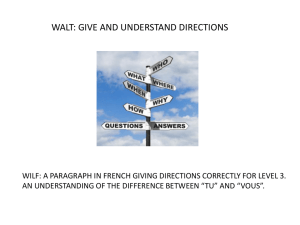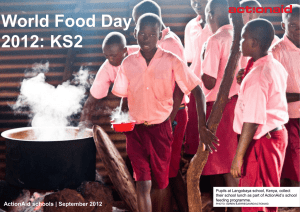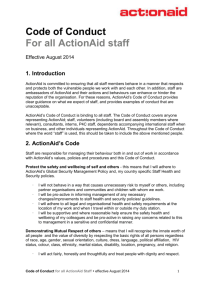A Childhood in Brazil
advertisement
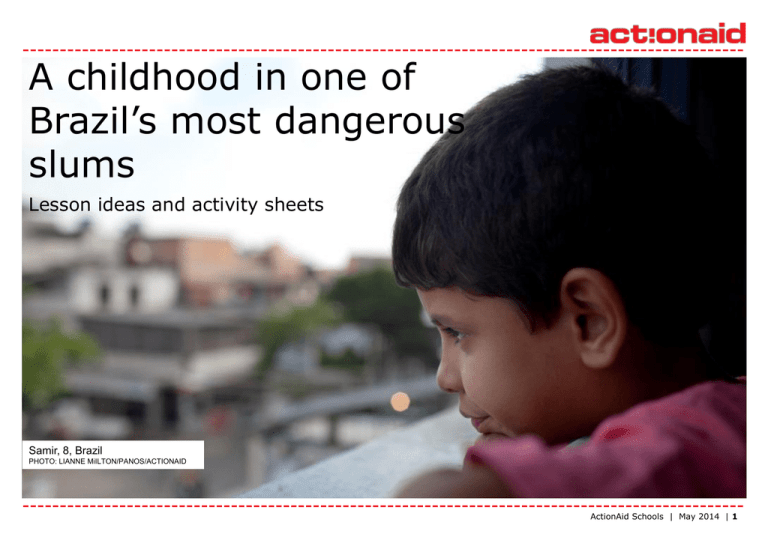
A childhood in one of Brazil’s most dangerous slums Lesson ideas and activity sheets Samir, 8, Brazil PHOTO: LIANNE MiILTON/PANOS/ACTIONAID ActionAid Schools | May 2014 | 1 A Childhood in Brazil/Lesson plan Introduction: Brazil is one of the world’s largest economies and is about to play host to the 2014 World Cup, but despite this period of economic boom, income distribution remains incredibly unequal. 16 million Brazilians live below the poverty line. Objectives: To discover the challenges of growing up in Maré favela, Brazil. To explore the similarities and differences between growing up in Maré favela, Brazil and in the UK. Outcome: To annotate an image To create a pictorial diary To complete a venn diagram Activity Resources Starter • Where was the photography taken? Pupils share their ideas with reasons for their answers. Introduce the Maré favela using notes on PowerPoint. • How does a house in the favela compare to where pupils live? Pupils complete Activity Sheet 1 and share their thoughts. • PowerPoint • Activity Sheet 1 Main • Introduce Samir and Samira to pupils using PowerPoint. • Lead pupils through a day in the life of Samir and Samira using slides 5-16 in the PowerPoint (edit according to time constraints). • Pupils create a pictorial diary of their own, either using Activity Sheet 2 or their own format. You may want pupils to take and print photos in advance as a homework. • PowerPoint • Activity Sheet 2 (optional) Plenary • Pupils use their pictorial diary and what they have learnt about life in the favela to complete Activity Sheet 3 (or draw a venn diagram in books). Ask pupils to share some of their answers. How different are their lives to Samir and Samira? Why? • Using the PowerPoint, explain what ActionAid does to support communities living the favela and what impact this has on the lives of Samir and Samira and their mum Cirlene. • PowerPoint • Activity Sheet 3 (optional) Curriculum links PSHE/Citizenship: KS2 4b. to think about the lives of people living in other places and times, and people with different values and customs. 4f. that differences and similarities between people arise from a number of factors, including cultural, ethnic, racial and religious diversity, gender and disability. PSHE/Citizenship: KS2 4b. to think about the lives of people living in other places and times, and people with different values and customs. 4f. that differences and similarities between people arise from a number of factors, including cultural, ethnic, racial and religious diversity, gender and disability. PSHE/Citizenship: KS2 4b. to think about the lives of people living in other places and times, and people with different values and customs. 4f. that differences and similarities between people arise from a number of factors, including cultural, ethnic, racial and religious diversity, gender and disability. ActionAid Schools | May 2014 | 2 A childhood in Brazil/Activity Sheet 1 – Our house in the middle of our street Instructions: Look at the image on this page and then either add arrows from a sentence to something in the image or complete the sentence. Draw an arrow from each sentence to something in the image This is similar to what I see near my home This is different to what I see near my home Complete the sentences: Complete the sentences: I am surprised to see... I already knew... This helps me understand... I did not know... ActionAid Schools | May 2014 | 3 A childhood in Brazil/Activity Sheet 2 – A day in the life of… you! Instructions: Fill in a day in your life in the diary below using pictures, for example photos or cartoons. Dear diary, My morning My evening My afternoon My bedtime ActionAid Schools | May 2014 | 4 A childhood in Brazil/Activity Sheet 3 – A day in the life of… Instructions: On the outermost part of the circles, fill in the different activities that you do during your day and that the twins do during their day. Where the circles overlap in the middle, fill in the activities you do that are the same as those done by Samir and Samira. Your day The twins’ day Differences Differences Similarities ActionAid Schools | May 2014 | 5




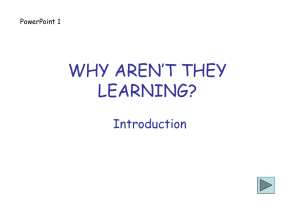
![afl_mat[1]](http://s2.studylib.net/store/data/005387843_1-8371eaaba182de7da429cb4369cd28fc-300x300.png)



